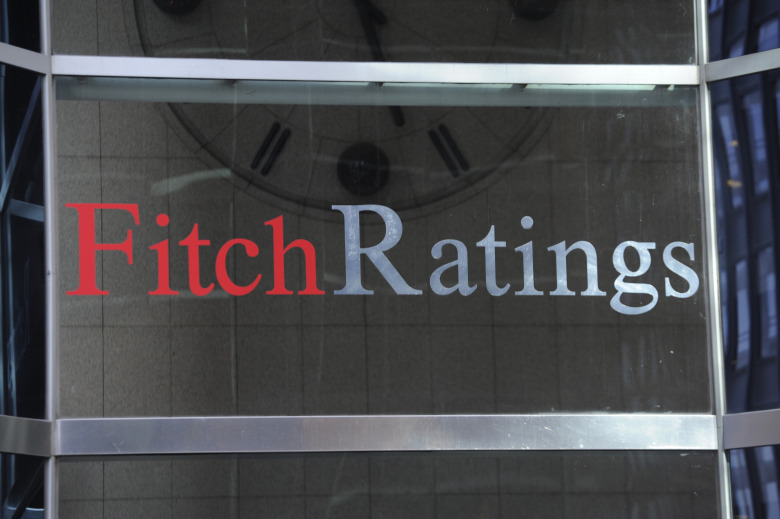As he points out, fiscal and macroeconomic adjustment has accelerated in recent years
The credit rating agency Fitch has confirmed the Greek debt at investment grade BBB- with a stable outlook.
Greece’s ratings, the house says, are supported by its level of per capita income that exceeds the average level of countries with creditable “BBB” and governance indicators that are at the same level as these countries, as well as by a credible framework policy supported by its membership in the EU and the Eurozone.
Fiscal and macroeconomic adjustment has accelerated in recent years, based on improving fundamentals and policy credibility. “These advantages are contrasted with the legacies of the sovereign debt crisis, in particular the very high but steadily declining public debt, as well as the significant loss of economic output, the low rate of investment, persistent external imbalances and old contingent liabilities of the banking sector, notes the house”.
As key factors in its assessment, Fitch states:
Prudent fiscal stance
“We expect the government’s sound fiscal policy to continue in 2025 and 2026. Greece has achieved a strong fiscal position following the pandemic and energy shocks, with a fiscal deficit estimated at around 1% of GDP this year. This is more favorable than the current median deficit of BBB-rated countries (2.6%) and below the EU average (3.1%). Revenue is boosted by improved tax collection, while spending is under tight government control. We forecast that the primary budget surplus will remain above 2% of GDP until at least 2026.”
Reliable fiscal framework
“The government’s commitment to fiscal prudence has recently been reinforced with the 2025 budget plan and the medium-term fiscal-structural plan drawn up under the revised EU fiscal framework. The government committed to keeping the fiscal deficit well below the reference value of 3% of GDP over the medium term and to ensure a continued reduction in the debt-to-GDP ratio, based on a moderate growth path in primary expenditure, the new key variable of the rules of the EU. Fitch considers the adjustment plan credible.”
Reduction of public debt
“The combination of stable primary surpluses, low and stable interest expenditure and nominal GDP growth of around 4% will ensure a continued decline in the debt-to-GDP ratio. Our baseline scenario is that debt could fall below 140% of GDP by 2028 from 164% at the end of 2023 and a high of 207% in 2020.
Greece has achieved one of the largest debt reductions in Europe since the pandemic. Despite all this, debt is still almost three times higher than the median level of ‘BBB’ countries which is 56% and much higher than the Eurozone average which is 90%.
Low financial risks
“The country’s favorable debt profile – a long average maturity of 19 years with favorable interest rates and large cash reserves (€47 billion in September 2024) – significantly reduces market risks and serves as a cushion against future shocks. In this favorable context, we expect a smooth transition to market funding. Public debt increased by 12 billion. euro (5.5% of GDP) due to the reclassification of deferred interest on EFSF loans. The reclassification also increased the implied interest rate on the stock of debt by around 20 basis points, from 1.3% to around 1.5%, which is still well below the nominal growth of the Greek economy.”
Moderate growth trajectory
“We forecast real GDP growth of 2.4% next year, similar to 2024 and 2023. Growth is supported by a steady acceleration in investment and subdued consumption growth, underpinned by rising real wages and further reduction of unemployment. The unemployment rate fell to 9.3% in September 2024, the lowest level since 2009, and inflation has stabilized around 3% in recent months.
The Recovery and Resilience Fund (RRF) supported investment, with Greece achieving one of the highest absorption rates in terms of grants among EU members. We also expect some positive spillover effects from the RRF on private investment and consumption.
Despite the recent solid growth performance, Greece still bears scars from the debt crises: the investment-to-GDP ratio at 15.6% is still low compared to other EU countries and the GDP level is almost 20 percentage points below from the high level of 2007. We expect economic growth to remain on a steady path of around 2% in the medium term, above the growth rate of the Eurozone.’
High current account deficit
“The current account deficit stood at 6.3% of GDP in 2023, significantly higher than the BBB-rated median of 0.3%. The deficit narrowed in 2023 from 10.3% of GDP in 2022 due to lower commodity prices, but the improving trend did not continue in the first half of 2024.
Tourism receipts slowed during the peak summer season, likely reflecting overall weakness in European demand. From a structural point of view, the very low saving rate of the Greek domestic sectors is the main reason for the significant deficit in the balance sheet, while the further acceleration of investment in the medium term will put further pressure on it.
“Participation in the euro area mitigates the financial risks stemming from the large balance sheet deficit and we do not expect any disruption to capital outflows.”
Upgrading of banks
Fitch upgraded the ratings of the four systemic banks by one notch in September, with a positive outlook. This reflects our expectations for further improvements in Greece’s operating environment and banks’ credit profiles. Greek banks maintain high liquidity and strong profitability, supported by higher interest rates, the completion of restructurings and the consolidation of balance sheets.
The banks’ total equity ratio of 19.1% at the end of June 2024 is close to the Eurozone average of 20.1%. The consolidated NPL ratio (end June 2024: 6.4%) will decline further in the second half of 2024 and 2025 due to a combination of organic actions, small portfolio sales and loan growth. The consolidation of asset quality in less important institutions will be supported by the asset protection programme.




